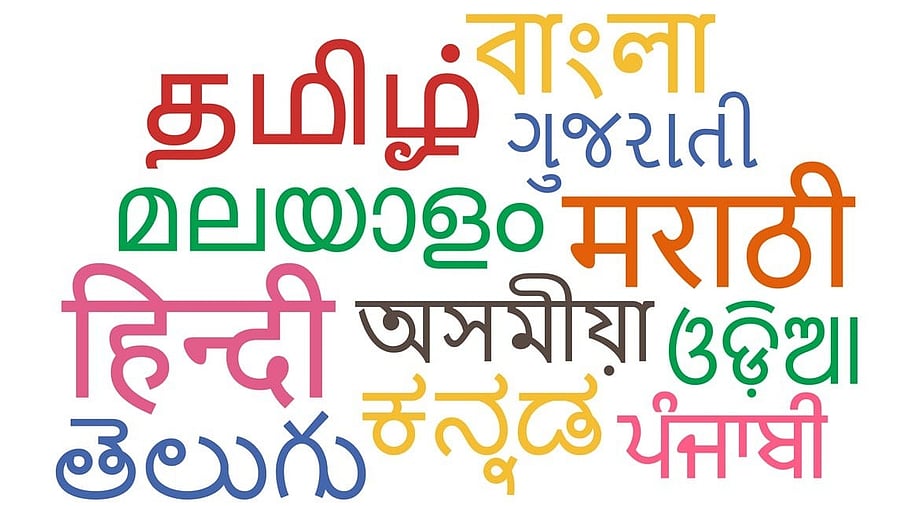
Representative image showing Indian languages
Credit: iStock Photo
I was not born in this country. My parents moved to the United Kingdom to pursue specialty training in medicine in the late 1960s. I was born in the suburbs of London in the hospital they were training at. When they decided to return to India in the mid-70s, I didn’t have a passport of my own. I piggybacked on my mother’s passport.
I grew up in the vibrant coastal town of Mangaluru. English was the primary language spoken at school, while my mother tongue was Konkani. The local dialect, Tulu, was widely spoken in South Canara, now known as Dakshina Kannada district. With the Kerala border just 30 km away, I also learned Malayalam during my medical school days. The Kannada that we spoke here was infused with words from these languages. It was easy to be identified as an outsider in larger cities like Bengaluru and Mysuru, much to the delight of taxi and auto-drivers. During my stay at Thiruvananthapuram I was often asked, “So, are you an Anglo-Indian?” I spent three years here training to be a Neurosurgeon. My response, “I’m a Mangalorean Catholic,” would often be met with amusement.
“Any Goan connection?” some would ask. I usually replied saying the connection ended in the 16th Century following the migration from Goa to the Karnataka coast for various reasons ranging from religion to drought and plague.
I later spent three years in the United States pursuing fellowship training in a sub-specialty in neurosurgery. On a work visa, I was designated as a “legal alien.” People would often ask, “Are you of mixed race?” or comment on my accent, saying, “You don’t sound Hispanic or European.” The African-Americans were kind and many addressed me as their brown-brother, mostly the hospital staff. Despite our myriad differences, those from south Asia, were categorised under the same colour.
“Asian” was reserved for those of the Mongoloid race. My name, genealogy, language, and nationality, each tried to stereotype me into a category I didn’t fit into. I never faced significant challenges integrating into academic, social, or professional groups. In the medical profession, our work is built on interdependence, leaving little room for bias. At times, the innocent curiousness of others made me feel exotic.
I returned to Bengaluru in 2016. Interacting with patients helped sharpen my spoken Kannada. Recently, on the occasion of World Stroke Day, I was invited to give a TV interview on stroke awareness in Kannada. With the help of online resources, I translated medical terms and phrases into Kannada and practised my responses. As I entered the studio I felt like Colin Firth in the movie The King’s Speech, the British king with a stammer who broadcast live Britain’s declaration of war on Germany during the Second World War.
The interview went well, much to the amazement of myself, my family, colleagues and previously treated patients who met me. “Sir, thumba chennagithu”, a hospital staff told me. The message was conveyed; the diction was Bengalurean. I had finally arrived in Karnataka!